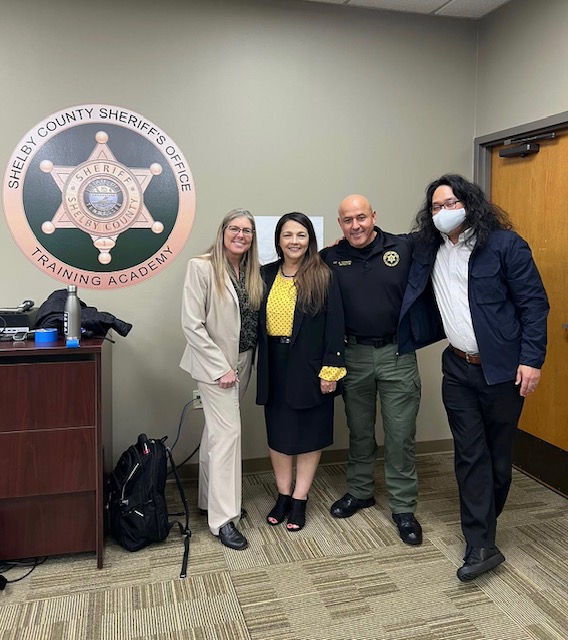CasaLuz was founded in 2015 by Venezuelan attorney, Inés Negrette, as a response to the the “lack of culturally specific services and resources to Hispanic/Immigrant victims of violent crimes,” in the Memphis-area.
The most recent statistics from the United States Census Bureau (USCB) said 7.7 percent of Memphis’ population identify as Hispanic and Latino. The USCB considers people of “Cuban, Mexican, Puerto Rican, South or Central American, or other Spanish culture or origin regardless of race,” as Hispanic or Latino.
In addition to this, Stacker Media reported that 30.8 percent of foreign born residents from Mexico live in Memphis. The company also said that Mexico is the number-one most common country of origin in the Tennessee, Mississippi, Arkansas Metro area.
Negrette explained that when she initially founded CasaLuz, she only sought to provide victim services and focus on advocacy. However, “immediately” she realized they needed to widen their approach after seeing the various problems their clients faced.
According to its website, CasaLuz is the “first and only non-profit organization in the Memphis/Shelby County area that culturally and exclusively serves Hispanic/Latinx victims of domestic violence, sexual assault, human trafficking, stalking, harassment, and other violent crimes, including aggravated assault, aggravated robbery, kidnapping and more.”
The organization will celebrate its eighth anniversary this year, and Negrette explains that it has not been an easy journey. She says there have been many challenges, but that her work is needed.
Negrette’s experience in Memphis has been shaped by racist and “anti-immigrant” behavior, and how people use their own personal biases in the workplace.
“That is totally unacceptable,” said Negrette. “Especially when you are responding to victims of crime. I’m talking about different agencies, organizations, law enforcement. When they are violating Title VI of The Civil Rights Act of 1964, and they still behave like you or your client doesn’t have any rights, they’re in really big trouble.”
Organizations that receive federal funding must provide interpretation services, Negrette said, but that isn’t always the case. According to the U.S. Department of Justice Office of Justice Programs, “Under Title VI (and the Safe Streets Act), recipients are required to provide LEP (limited English proficient) individuals with meaningful access to their programs and services. Providing ‘meaningful access’ will generally involve some combination of services for oral interpretation and written translation of vital documents.”
CasaLuz’ work primarily deals with Hispanic and Latinx victims of domestic violence and sexual assault, among other traumatic events. Negrette explains that both domestic violence and sexual assault are among the most un-reported crimes, as it takes so much for a victim to come forward, a decision made much more difficult when you’re an immigrant.
“You are in another country. You don’t have your support system, said Negrette. “Many of our clients come here [Memphis] because their legal spouse made a promise of adjusting their status. They use immigration status as a tool against them.”
When clients make their way to CasaLuz, they’ve usually endured years and years of abuse, Negrette said.
“Once you go and look for help, and they mistreat you, they won’t believe anyone else,” said Negrette.”It’s a lack of trust through the judicial system and law enforcement – are they really going to help them? They fear being deported. They don’t understand the language, the culture.”
As a result of these barriers, Negrette has been tapped by several agencies to provide culture sensitivity training, and has partnered with the Memphis Police Department to provide “cultural awareness/responding to immigrant victims of crime training.”
Negrette said that they are also able to streamline the process from their offices including filing paperwork for clients and submitting court applications. They even have a partner to provide legal services.
“By the time of the hearing, the client will have a bilingual advocate with her, plus an attorney. The same thing with counselors. We have two Latina counselors in our office, and that is individual counseling.”
Negrette said that it’s been difficult getting here, but she is driven by her passion and vision for advocacy.
“Having to push, and never taking ‘no’ for an answer, has been difficult, yes,” said Negrette. “Easy? No, it’s not easy. But it is a way for us to try to become a part of the solution.”
